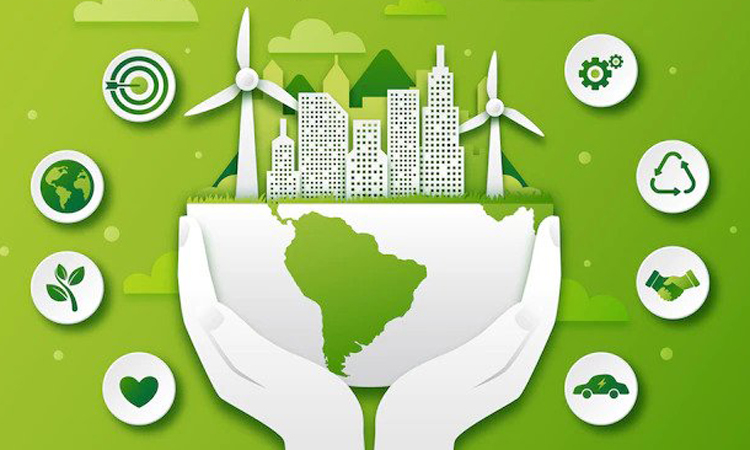
Sustainable development is an organizing principle for meeting human development goals while also sustaining the ability of natural systems to provide the natural resources and ecosystem services on which the economy and society depend. The desired result is a state of society where living conditions and resources are used to continue to meet human needs without undermining the integrity and stability of the natural system. Sustainable development can be defined as development that meets the needs of the present generation without compromising the ability of future generations to meet their own needs. It is interlinked with the normative concept of sustainability. UNESCO formulated a distinction between the two concepts as follows: "Sustainability is often thought of as a long-term goal (i.e. a more sustainable world), while sustainable development refers to the many processes and pathways to achieve it.
While the modern concept of sustainable development is derived mostly from the 1987 Brundtland Report, it is also rooted in earlier ideas about sustainable forest management and 20th-century environmental concerns. As the concept of sustainable development developed, it has shifted its focus more towards the economic development, social development and environmental protection for future generations.
The concept of sustainable development has been criticized from different angles. While some see it as paradoxical (or an oxymoron) and regard development as inherently unsustainable, others are disappointed in the lack of progress that has been achieved so far.
